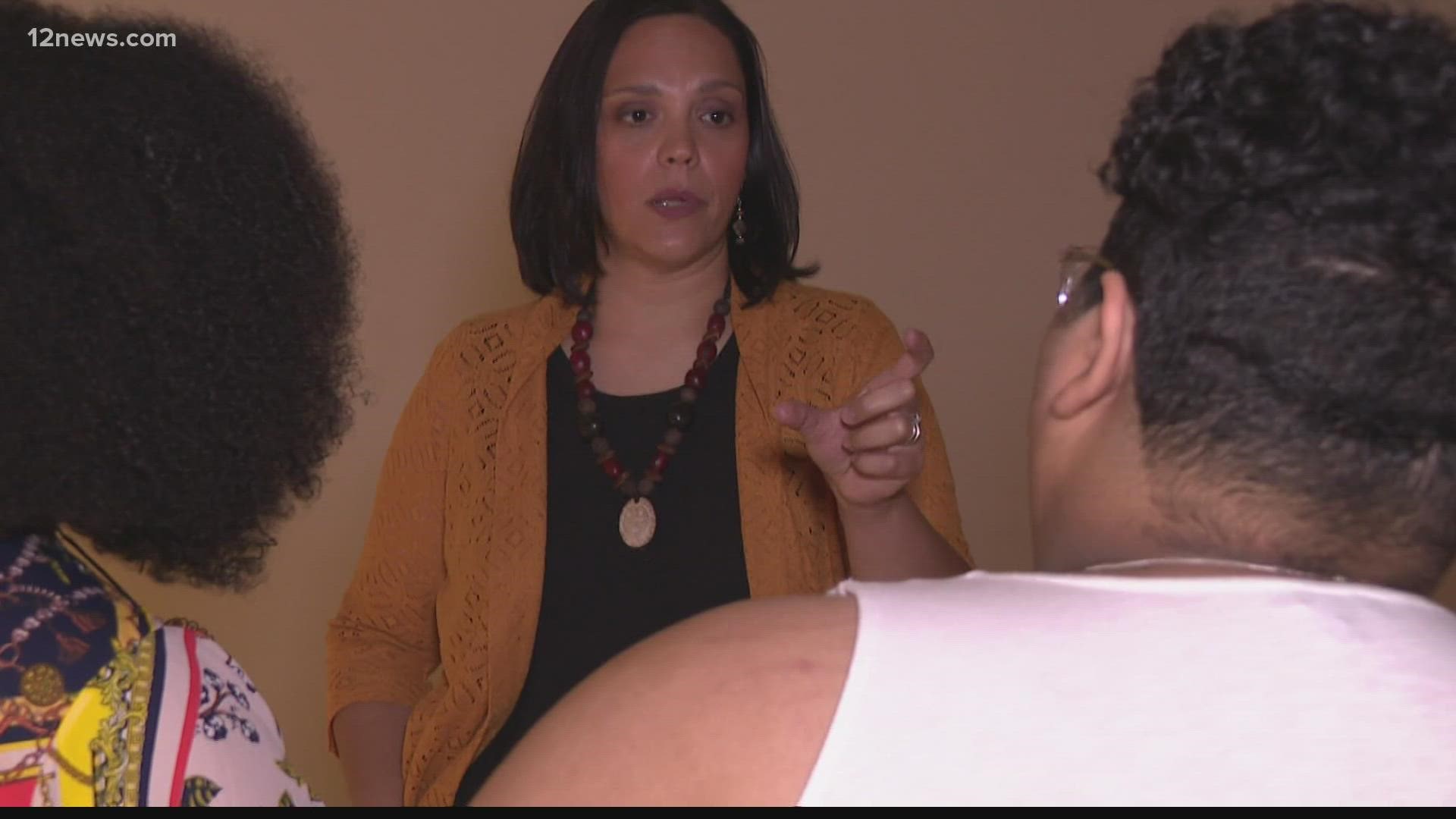TEMPE, Ariz. — An Arizona State University assistant professor is inspiring future mental health professionals with Hispanic backgrounds to find healing within themselves and others.
Dr. Cristalis Capielo Rosario founded the PLENA research lab, which currently has 15 students who identify as students of color or Latino. The research team’s mission is to conceptualize and disseminate research “in multiculturalism and Latinx psychology.”
“We have the tools, we have the skills, we have the brilliance to be able to do it. We just need to create spaces,” Capielo Rosario said.
Finding Her Mission
Capielo Rosario said she was the only Hispanic student in her graduate school program at the University of Georgia where she received her doctorate in counseling psychology in 2016.
While at the university, she met a professor who gave her an opportunity to co-create a lab that centered on Latinx psychology.
“I knew from that first interaction with him I wanted to do the same thing, to pay it forward,” she said.
When Capielo Rosario arrived at ASU, she launched PLENA.
'We are not a monolithic group'
Capielo Rosario wants to help raise up the next generation of psychologists and counselors who are Latinx because they are underrepresented in academia and in counseling offices, she said.
Capielo Rosario also wants to help counselors of all backgrounds become in-tune to the needs of the Hispanic population while avoiding stereotypes.
“Many times the interventions that are put in place for Hispanic groups is a one-size-fits-all approach,” Capielo Rosario said. “We are not a monolithic group. Our migration experiences are different. Our histories are different.”
Capielo Rosario’s own research specializes in how colonialism impacts the Puerto Rican community.
A commonality that people of Hispanic origin are likely to share is having experiences “of colonialism and oppression,” Capielo Rosario said.
“If we understand, if we know, that it’s systemic. That these interlocking systems of oppression are connected to our mental health, to our economic well-being, to our overall well-being, then doing individual health, one-on-one interventions is not enough,” she said. “We need to have these ongoing conversations to expand our goals.”
Expanding Scope of Hispanic Heritage Month
During Hispanic Heritage Month, Capielo Rosario said she hopes the conversation within the Hispanic community goes beyond cultural celebrations.
“I think for Hispanic Heritage Month we tend to focus on the artificial music, the food, and we don’t get at what makes us, us. What is the community doing to resisting, to thriving within oppression?” she said.
When asked to explain what it means to “thrive within oppression”, Capielo Rosario said it means acknowledging that the existence of Hispanic individuals within the U.S. “is political.”
“What does it mean to be Latinx? What does it mean to be Puerto Rican, Dominican, Mexican, a DACA recipient? There are policies that inform migration, that inform access,” Capielo Rosario said.
For example, a DACA recipient may go through the typical developmental stages of adolescence and once they reach high school, they realize they aren’t able to apply for a driver’s license or apply to college.
“What does that mean to their sense of self?” she said.
'We need to heal ourselves'
The Hispanic community has been at the center of protests and debates for years on issues such as immigration, the education gap, DACA and access to social services.
Those issues can have an overarching impact on the mental well-being of Hispanic patients and therapists.
“If we don’t understand how mental health disparities are associated with economic disparities, with labor disparities and exploitation, we’re missing the mark,” Capielo Rosario said.
She says her own healing is connected to her community’s healing.
“If they are struggling, I am struggling,” Capielo Rosario said. “We need to come with healing circles, with arts, and other forms of therapy to be able to heal ourselves and to get energy so that we can keep doing the work.”
Hispanic Heritage Month
Celebrate Hispanic Heritage Month with 12 News as we tell stories from the community from September to October.

